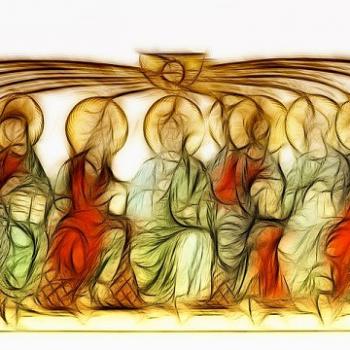Former President Obama loved to quote a hopeful statement from Dr. Martin Luther King, Jr.: “The arc of the moral universe is long, but it bends toward justice.” The quote was so important to the former President that he had it woven into a rug in the Oval Office. The statement is controversial, because it can be used to justify all sorts of ideas (since there are many conceptions of what “justice” amounts to), as well as a justification for doing nothing (since history is guided in the long term toward justice regardless of what we do). A more basic question to ask about Dr. King’s claim is simply “Is it true?”
The question is particularly pressing right these days. If the arc of the moral universe tends toward justice, it apparently also stops, reverses on itself, and wanders off in different directions regularly. Here we are, decades later, still wondering when and if equal justice for all citizens, regardless of race, gender sexual orientation, or other irrelevant characteristics will ever arrive. And what will it look like if it does?
A few semesters ago, I spent a couple of mornings with fifteen colleagues at a seminar for honors faculty that occurs at the end of every academic year on my campus. One of my colleagues led the second morning’s discussion on Ta-Nehisi Coates’ Between the World and Me. Coates’ book is written as an extended letter to his son, providing as much insight and wisdom as Coates can muster concerning the challenges of growing up as a black man in this country.
The book has many virtues, but there is one particular feature of it that I keep thinking about long after our discussion. Coates is an unapologetic atheist, cautioning his son frequently against the temptation to see some sort of divine plan behind the suffering of African-Americans over the centuries in this country. He references, for instance, the notion that the horrors of slavery were a necessary step in the direction of slow but inexorable progress toward rights and freedom.
You must struggle to truly remember this past in all its nuance, error, and humanity. You must resist the common urge toward the comforting narrative of divine law, toward fairy tales that imply some irrepressible justice. The enslaved were not bricks in your road, and their lives were not chapters in your redemptive history. They were people turned to fuel for the American machine . . . It is wrong to claim our present circumstance—no matter how improved—as the redemption for the lives of people who never asked for the posthumous, untouchable glory of dying for their children.
It is tempting and so easy to read history as an unfolding story intended to produce us, the various stories differing radically depending on who the “us” at the center of each story happens to be. Behind the scenes in many of these stories is cosmic and divine intention. But Coates argues that if we stop telling such stories and simply consider what actually has happened and is happening, we have little reason to see progress or to detect a divine plan.
Perhaps struggle is all we have because the god of history is an atheist, and nothing about his world is meant to be. So, you must wake up every morning knowing that no promise is unbreakable, least of all the promise of waking up at all. This is not despair. These are the preferences of the universe itself: Verbs over nouns, actions over states, struggle over hope.
Simone Weil, who was no atheist, once wrote that “atheism is a purification.” Coates’ point here is an example of Weil’s observation in action. If we refuse, at least temporarily, to be consoled by comforting stories, we find ourselves in the middle of a reality that shows no preference for any of the things that we claim to love most. Everything can be taken away. Everyone dies. For every apparent step forward there are at least as many equally apparent steps in the other direction. A dose of atheism is something like the ubiquitous bucket challenges of a few years ago—it dumps cold water on all of our preconceptions and unsupported hopes.
Despite the stereotypical attitudes of persons of faith toward atheism, a dose of atheism can be clarifying, even purifying as Weil suggests. A godless world is not a meaningless world—but it is a world in which meaning must be created, not found. Additionally, atheism need not take wonder, beauty, inspiration, or awe out of the equation; indeed, it might open our eyes in a new way to what is right in front of us. Coates writes that
Godless though I am, the fact of being human, the fact of possessing the gift of study, and thus being remarkable among all the matter floating through the cosmos, still awes me.
Perhaps no more than this is needed to establish a foundation for seeking justice, equal rights for all, and equal access to the possible fulfillment of our best hopes and dreams for every individual. The God of history being an atheist does not eliminate the possibility of justice. It does, however, mean that we have no reason to believe that justice will happen because of some divine plan—it is up to us.
Coates is not an aggressive atheist; there are times when it is clear that he wishes he could resonate with the faith that has been so important to the generations that produced him.
I thought of my own distance from an institution that has, so often, been the only support for our people. I often wonder if in that distance I’ve missed something, some notions of cosmic hope, some wisdom beyond my mean physical perception of the world, something beyond the body, that I might have transmitted to you.
I have become convinced over the years that human beings cannot live for long without hope, and find that the strong conviction that there is something more going on than meets the eye is a conviction that not only shapes my life, but is one that I cannot imagine lacking. But this does not make my faith commitment “better” than Coates’ atheism—it simply means that each of us must find our own ways toward meaning through a reality that very possibly offers little or no meaning to be found. The arc of the moral universe will bend toward justice only if we are committed daily to bending it in that direction.












